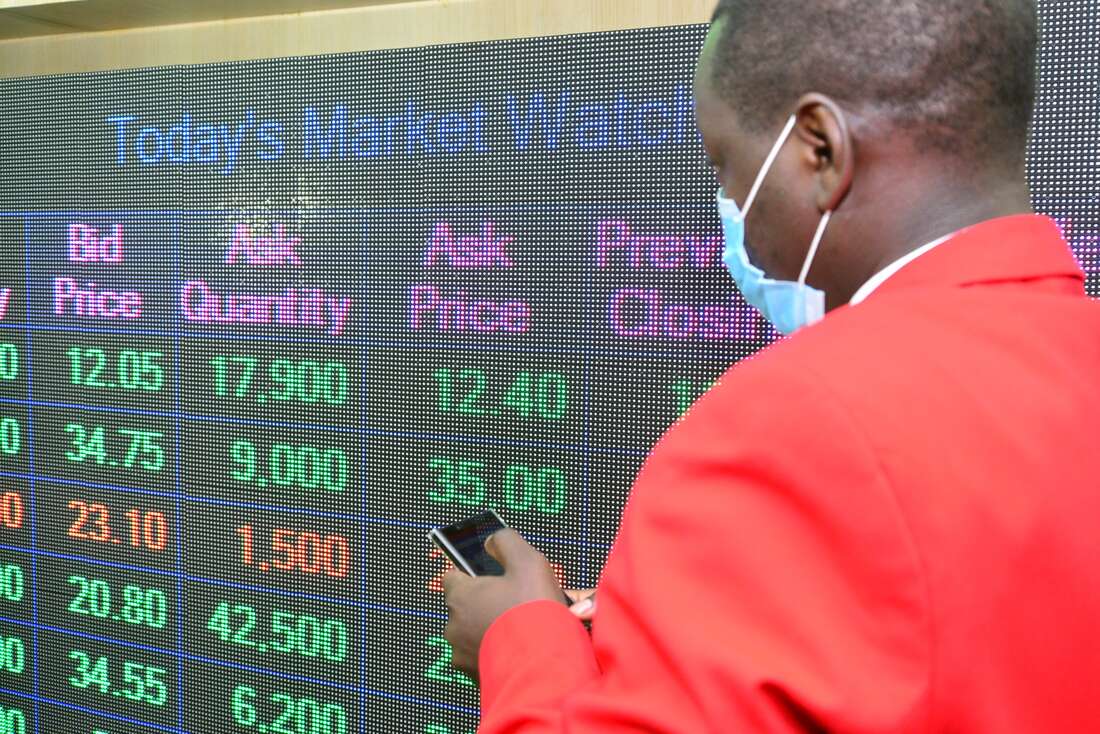Investors on the Nairobi Securities Exchange #ticker:NSE (NSE) have lost Sh146 billion in paper wealth over the last two weeks as demand for stocks slumped amid shifting preference for the government’s tax-free infrastructure bond.
The NSE market capitalisation declined from a high of Sh2.93 trillion mid-August to Sh2.78 trillion at the close of trading Monday following a seven-day consecutive slump.
The top five blue-chip counters, which control 80 percent of the market, lost a combined Sh139.8 billion in paper wealth.
The Safaricom #ticker:SCOM counter saw the biggest loss at Sh112.1 billion followed by Equity Bank’s #ticker:EQTY Sh14.3 billion.
KCB #ticker:KCB shareholders lost Sh6.1 billion, East African Breweries #ticker:EABL Sh5.7 billion and Cooperative Bank #ticker:COOP Sh1.4 billion.
Market analysts say that the decline has coincided with the issuance of the Sh75 billion 21-year infrastructure bond floated on August 23, and whose sale ends today.
“We have been talking to clients and what we saw was a build-up of interest towards the IFB [infrastructure bond] where investors for the past few weeks have been lining up to position bids. That has been the main focus,” said Eric Musau, head of research at Standard Investment Bank.
The NSE has lost almost half of the market gains since January this year, which saw stock prices appreciate by Sh394 billion to August 24.
The sharp decline comes after the NSE recorded the rally in a rebounding economic environment and investor confidence in the business models adopted by firms keen on shaking off the knocks of the Covid-19 pandemic.
The Safaricom stock was benefiting from the news of entry into Ethiopia and the recent confirmation that the Horn of Africa nation will soon allow for a mobile money licence.
Banks saw a rise in their stocks after the first half results sent the clearest indication that the sector had come out of the Covid-19 downturn, heralding a resumption of dividends for shareholders.Most lenders, however, opted not to issue interim dividends in a wait-and-see approach, making them less attractive.Mr Musau said the infrastructure bond, which due to tax-free status tends to attract heavy bidding, offers a more lucrative return than stocks in the short run.He said that the decline does not reflect the stocks market’s performance that has seen banks post record profits, indicating a recovery.“Banks have delivered solid numbers which shows that if you look at full-year numbers they are likely to pay dividends even if they have not paid on interim. I do not […]
